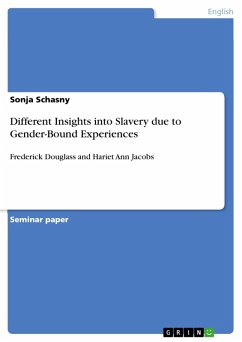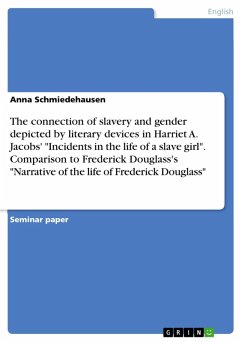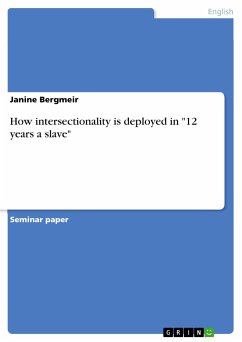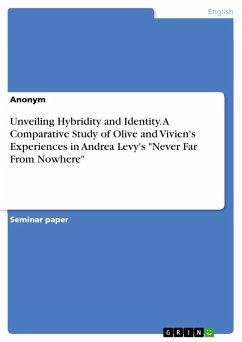Seminar paper from the year 2009 in the subject American Studies - Literature, grade: 2,0, TU Dortmund (Institut für Anglistik), course: Transatlantic Slavery, language: English, abstract: Although the people from Africa already new slavery on the African continent, they experienced totally new insights into slavery when arriving in the New World in the 19th century. Henceforward, a new era of dehumanization, depersonalization, brutal and dreadful mistreatments of Afro-Americans took place, which still in these days influence the history of the United States. Harriet Ann Jacobs' Incidents in a Life of a Slave Girl (1861) and Frederick Douglass' Narrative of the Life of Frederick Douglass, an American Slave (1845) are two autobiographical slave narratives which show on a very impressive, personal and emotional level the repercussions, the atrocities and effects of slavery on the individual slave as well as on the slaveholders. However, it can be read that under an economy of slavery, both male and female slaves are feminized or "ungenered" and that the denial of subject status is linked to the exclusion of slaves from participation in the gender system that structured the dominant society (cf. Boesenberg 1999: 119). In this paper it will be analyzed and discussed in how far these gender-defining statements made by Boesenberg in particular can mislead the reader. Actually, a lot of gender-bound experiences of slaves will be pointed out in this paper which illuminate that the individual slave acts and lives accordingly to his or her gender. The aim of this paper is to emphasize differences of gender-bound experiences between Douglass' and Jacobs' narratives. Firstly, a depiction of slavery will help the reader to empathetically imagine the conditions of the situation in which the slaves and the slaveholders lived together. In a second part the influences of slavery on the social environment will be analyzed while focus will be given on the one hand to the slave families and on the other hand to the slaveholders. In a third part punishment and abuse, which are split into physical and psychological abuses, will be discussed. In the end the conclusion sums up the results from the previous chapters and analyzes the view on gender in a slavery-controlled society mentioned in Boesenberg's as well as in Matterson's essay.
Dieser Download kann aus rechtlichen Gründen nur mit Rechnungsadresse in A, B, BG, CY, CZ, D, DK, EW, E, FIN, F, GR, HR, H, IRL, I, LT, L, LR, M, NL, PL, P, R, S, SLO, SK ausgeliefert werden.
Hinweis: Dieser Artikel kann nur an eine deutsche Lieferadresse ausgeliefert werden.









